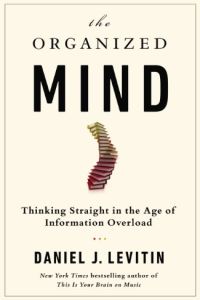Join getAbstract to access the summary!

Join getAbstract to access the summary!
Daniel J. Levitin
The Organized Mind
Thinking Straight in the Age of Information Overload
Dutton, 2014
What's inside?
Learn to organize your mind, even in this era of continual distraction.
Recommendation
In today’s “age of information overload” you may find yourself perpetually distracted and mired in multitasking. But you have better options. Daniel J. Levitin explains how to organize your mind, and how to systematize your workplace and your thinking to gain control over your life. He makes wonderful points about the limits of the human mind and how to deal with them. Yet even as Levitin explains the constraints of human attention, he floods readers with details. His advice proves so rich with specifics that it can be overwhelming, but deeply perceptive. getAbstract recommends this lovely, useful text to anyone living in the Information Age.
Summary
About the Author
Daniel J. Levitin is Dean of Social Sciences at the Minerva Schools at Keck Graduate Institute, a Distinguished Faculty Fellow at the Haas School of Business at UC Berkeley, and Professor Emeritus of Psychology at McGill University. He wrote the international bestsellers This Is Your Brain on Music, The World in Six Songs, The Organized Mind and A Field Guide to Lies.




















Comment on this summary